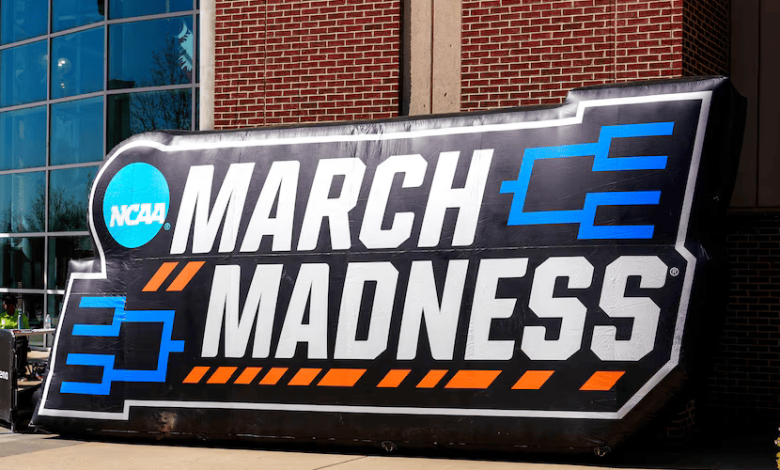There Are Already No Perfect Brackets for March Madness

March Madness Already Has No Perfect Brackets: What Does This Mean for Fans and the Tournament?
The NCAA Men’s Basketball Tournament, better known as March Madness, is one of the most exhilarating and unpredictable events in all of sports. Each year, millions of fans fill out their brackets, hoping to pick the perfect combination of upsets, Cinderella stories, and dominant performances that will lead to a flawless prediction of the tournament’s outcome. However, as the games unfold and chaos ensues, the dream of a perfect bracket is often dashed by the very unpredictability that makes March Madness so captivating. This year, March Madness has already claimed its first victim—the perfect bracket is officially gone.
As of the second round of games, no one has a perfect bracket left, and fans are once again left grappling with the reality that the odds of picking every game correctly are virtually impossible. But what does this mean for the tournament, the fans, and the future of bracketology? In this article, we’ll take a closer look at the significance of a perfect bracket, why it’s so difficult to achieve, and how this year’s March Madness has already delivered the kinds of surprises that make it the spectacle we know and love.
The Allure of the Perfect Bracket
The idea of filling out a perfect bracket is a pipe dream for many basketball fans, but it’s one that carries with it a sense of hope, optimism, and a touch of madness. Every year, millions of people—casual fans, diehards, and even those who have never watched a college basketball game—participate in bracket challenges, trying to predict the outcome of the 63 games that make up the NCAA Tournament.
A perfect bracket, where every game is correctly predicted, would require an unparalleled combination of knowledge, intuition, and luck. In fact, the odds of filling out a perfect bracket are astronomically high. Statisticians have calculated that the probability of picking a perfect bracket is somewhere between 1 in 9.2 quintillion and 1 in 120.2 billion, depending on the method used to make selections. To put it another way, the chances of getting every game right are so remote that even the most expert analysts, who know the teams inside and out, have no realistic chance of pulling it off.
Despite these odds, the quest for the perfect bracket is a massive part of March Madness culture. It’s not just about filling out a bracket for bragging rights; it’s about the excitement of following the tournament and seeing how close you can come to perfect. With every upset, buzzer-beater, and last-second shot, the dream of perfection grows further out of reach, but that’s exactly what makes the journey so thrilling.
Each year, some lucky or savvy participant gets closer to the elusive goal, making it even more tantalizing for others. And for a brief, fleeting moment, as the games are played and the brackets are filled out, there’s a shared sense of possibility. The dream of perfection captures the essence of March Madness: anything can happen.
The Breakdown: How March Madness Turns Brackets Upside Down
March Madness is known for its unpredictability. This is the very reason why the tournament is so exciting, and also the reason why a perfect bracket is essentially impossible. The odds of upsets, underdogs, and dramatic finishes are what give the tournament its “madness,” and this year has been no exception.
Already in the 2025 tournament, a series of shocking upsets has taken place, leading to the demise of perfect brackets across the country. Here’s a breakdown of how these early-round surprises typically unfold:
- The One and Done Nature of the Tournament: Unlike the regular season, where teams have a chance to recover from a loss, the single-elimination format of the NCAA Tournament means that one bad game or poor performance can end a team’s season. Even top seeds, who dominate throughout the regular season, are vulnerable to a single upset. In many years, a 16th seed has taken down a 1st seed, as was famously the case in 2018 when UMBC shocked Virginia in the first round. These early-round surprises set the stage for the chaos that follows.
- Cinderella Stories: March Madness is known for its Cinderella stories—lower-seeded teams that defy the odds and make a deep run into the tournament. Whether it’s a 12th seed knocking out a 5th seed or a 10th seed advancing to the Final Four, these underdogs bring the drama and unpredictability that make March Madness so compelling. The unpredictability of these Cinderella runs is what makes predicting the outcome so difficult. Fans who pick higher-seeded teams throughout their brackets are often left frustrated as lower-seeded teams storm through the tournament.
- The Power of the Buzzer Beater: Another reason why a perfect bracket is nearly impossible is the frequency of buzzer-beaters—game-winning shots made at the very last moment. These thrilling moments of tension and excitement often alter the course of games and shift the entire momentum of the tournament. A buzzer-beater can upend a bracket in an instant, leaving fans wondering how their picks went wrong.
- Injuries and Unexpected Developments: Throughout the tournament, injuries or unforeseen events can play a major role in determining the outcome of games. A star player may go down with an injury, or a team may lose its rhythm due to off-court distractions. The unpredictability of these factors makes it nearly impossible to account for every possible scenario when filling out a bracket.
This year’s March Madness has already delivered some jaw-dropping moments, with numerous lower seeds pulling off upsets. As a result, many brackets have already been busted, and the dream of a perfect bracket is effectively over for millions of fans.
Why Perfect Brackets are So Rare: The Numbers Game
The rarity of perfect brackets is not simply due to the madness of March Madness—it’s also rooted in the sheer complexity of the task. Statistically speaking, the odds are stacked against anyone achieving perfection.
To understand just how difficult it is, consider the structure of the tournament. With 68 teams competing, the tournament begins with a First Four round, followed by the traditional 64-team bracket. Each matchup features two teams, and there are 63 games in total that must be predicted correctly for a perfect bracket. Assuming a person picks the outcome of each game randomly, the chances of getting each one right are about 1 in 2. For a single bracket, that gives you a 1 in 9.2 quintillion chance of picking every game correctly.
However, even experts in the sport face the same daunting odds. The tournament features countless variables that can sway outcomes: team chemistry, game location, player performances, coaching decisions, and the general unpredictability that defines March Madness. Because of this, no amount of expertise can significantly improve your chances of filling out a perfect bracket.
This is why, despite the huge number of brackets filled out each year, perfection remains elusive. The combination of skill, luck, and circumstance makes it all but impossible for anyone to predict the exact outcomes of every game in the tournament.
The Impact on Fans and Bracketology
So, what happens when March Madness eliminates the possibility of a perfect bracket so early on in the tournament? For many fans, it’s the end of a dream, but it’s also the beginning of something even more exciting—the realization that the tournament is wide open.
Without the pressure of chasing a perfect bracket, fans can simply enjoy the drama and chaos of the tournament. The excitement of upsets, buzzer-beaters, and Cinderella stories becomes the focus, and the uncertainty that makes March Madness thrilling takes center stage. While filling out a perfect bracket is a fun challenge, it’s the unpredictability of the games that truly captures the essence of the tournament.
For the NCAA Tournament Selection Committee, the loss of perfect brackets also highlights the inherent difficulty in seeding the tournament and predicting outcomes. Every year, the committee makes tough decisions on who deserves to be seeded higher or lower, but the chaos of March Madness proves that no one can predict the future with absolute certainty. It’s a reminder that even the best teams can falter, and the underdogs have a fighting chance.
Looking Ahead: Embracing the Madness
As March Madness continues, the absence of a perfect bracket is a reminder of what makes this tournament so unique. It’s the upsets, the heartbreaks, and the surprises that keep us coming back year after year. A perfect bracket may never be achieved, but that’s part of the beauty of the tournament.
For the players, coaches, and fans, March Madness offers a chance to see college basketball at its most exciting. The elimination of perfect brackets just reminds us that anything can happen, and that’s why we love it. Whether you’re filling out a bracket for the first time or you’re a seasoned veteran, there’s always something to look forward to in the madness of March.









